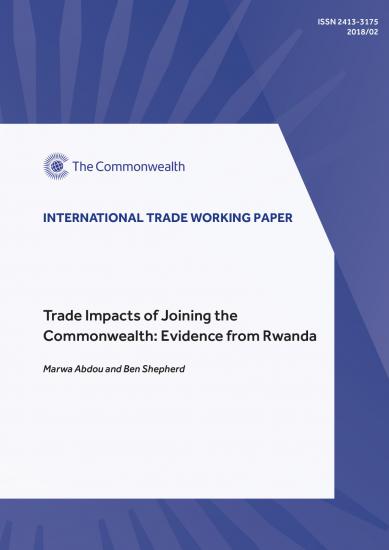Trade Impacts of Joining the Commonwealth: Evidence from Rwanda
Synopsis
The Commonwealth's member countries share unique historical ties, as well as resilient diaspora communities with linguistic and institutional similarities. These links could facilitate co-operation and contribute to increased trade, investment and labour flows. This working paper sets out to distill these linkages and their effects from other formal and informal mechanisms that can and do promote trade in the case of Rwanda. The difference in the growth rates of Rwanda's intra- and extra-Commonwealth exports before and after its became a member in 2009 shows some evidence of an increase in intra-Commonwealth trade, but this is not always statistically significant in the case of goods. Neighbouring countries with which Rwanda entered into a trade agreement in the same year account for an important part of the observed differences in growth rates. The model controls for exogenous factors such as language, colonial history and regulatory/legal heritage, as well as unobservable country-specific factors, so any effect of Commonwealth membership comes from other sources. This gives us an opportunity to examine more closely informal mechanisms such as those pertaining to information exchange that may support the evidence presented.

Downloads
Forthcoming
Online ISSN
Categories
License

This work is licensed under a Creative Commons Attribution-NonCommercial-NoDerivatives 4.0 International License.

